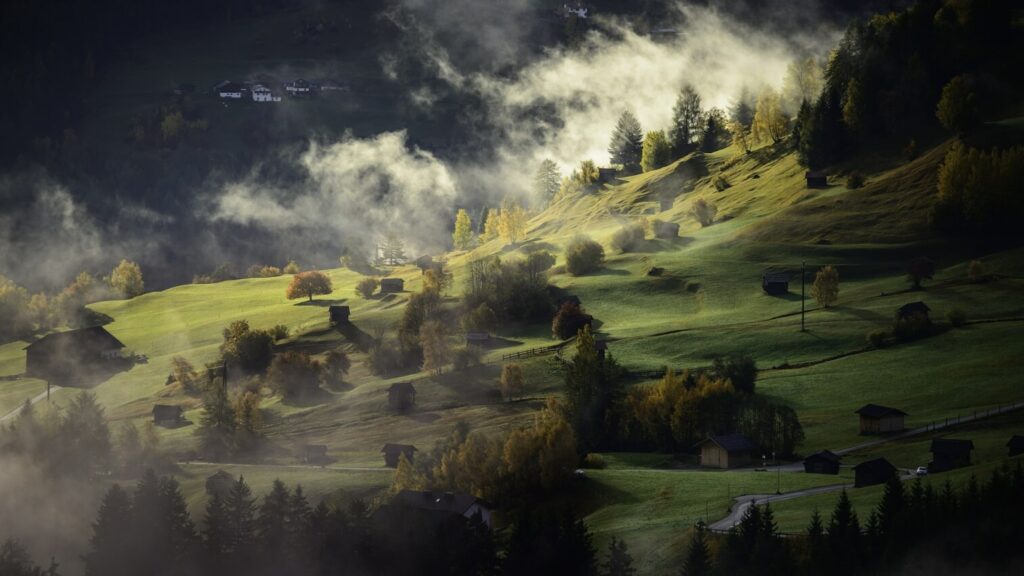Hi Everyone,
Okay, hands up, who knows the foggiest place in the world? If you guessed the steadily crashing, spraying waves at Grand Banks, Newfoundland, you’d be correct! If you guessed San Francisco (maybe the Golden Gate Bridge poking through the clouds?), you’d be on the radar, or maybe, as they say in Britain, you actually haven’t the foggiest. I like fog; it’s dramatic, potentially heralds a good story, a memorable yarn, or even a legend. Which country or culture doesn’t have its own fog god or one who didn’t step out of it? But much more than fog, I like mist, good old misty England, with its unique and changeable weather.
I miss the British rain when I travel. These days, if I’m on holiday in a perpetual 30°C sunny paradise, I find myself longing for this country’s soft rain, a misting, and I can only find it by rising early in the morning, long before sunrise. Sometimes an ocean spray can substitute, along with its shimmer of flying fish being chased by some unknown predator in reiterating waves. However, on a long walk in a real British mist, one that almost obscures my vision, whether in the morning or early evening at home in England, I find myself truly inspired: I cannot quite make things out. Is that a woman in a dark trench coat, carrying a brollie, or merely the remnant of a blackened, burnt-out Wellingtonia? Usually, it is neither – just another walker coming out of the mist like me, who nods (I think) in her woolly hat as she passes by. So English.
Imagining things disappearing into or out of the mist is a favourite distraction of mine. For example, not far from where I live is a meadow, a rather large pasture, 300 acres to be exact, that runs alongside the fabled River Thames. Called Port Meadow, it was apparently given to the Freemen of Oxford by King Alfred the Great for their help in putting the raiding Danes on the run. Tale has it that the meadow has never been ploughed in some 4,000 years and Oxford residents still have the right to (and do) graze their cattle and horses on this common land for free.
On that very meadow, dependent on the forces of nature, the Gulf Stream, the polar vortex, and other oceanic influences in the autumn and winter, there can be rolling ground fog (mist to me), quietly colourful, fully arched fog bows or clouds low hanging stubbornly in the trees. It is this sort of emerging and evaporating vapour that inspires me. Why? I am not sure, but history and literature are full of people, animals, whole ships, armies even, that have disappeared into and out of the fog. Think of George Washington and his 9,000 men in 1776 in a key battle of the War of American Independence evading the British in a sea fog that providentially rolled in and out, allowing for a timely escape.
Stories can begin and end with walking into and out of a mist, even if a lot of reading folk hate a foggy beginning or ending because it is a bit like “and then she woke up.” Writing teachers around the world decry it. No reader wants it “all to have been a dream.” It must be true.
Well, my stories (some say most stories) all begin in a sort of fog, a mist, sometimes even right there on Port Meadow as I walk my Cairn terriers. They often end there, too, when I actually wake up and keep the most remarkable ones, those that, you might say, just walked out of the haze and into the light of day.
Wishing you wonderful winter walks with, perhaps, a mixture of mist and its resultant clarity along the way.
Love,
Photo by jPeter2 – Pixabay
